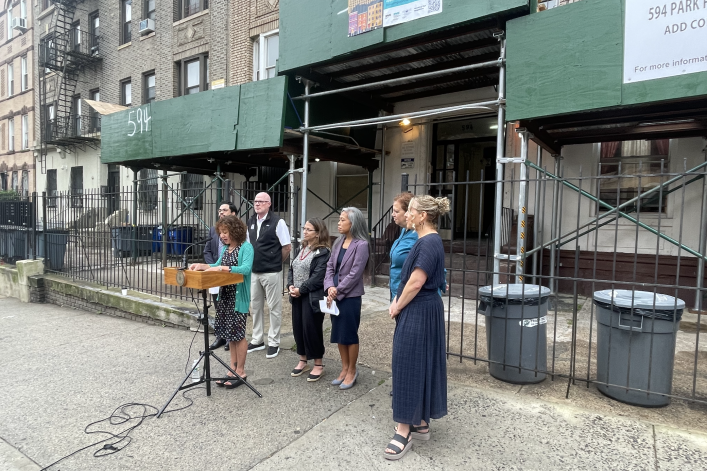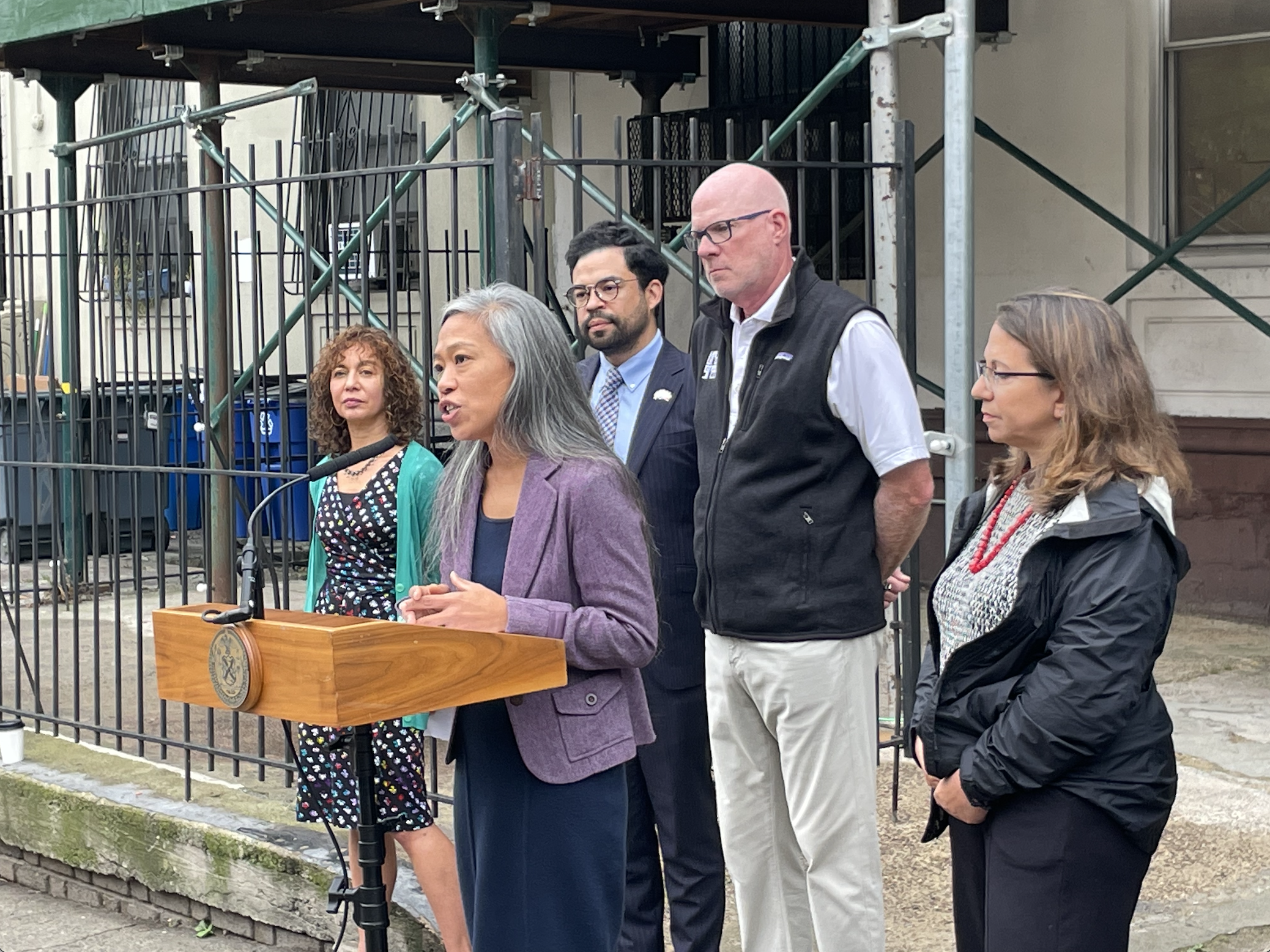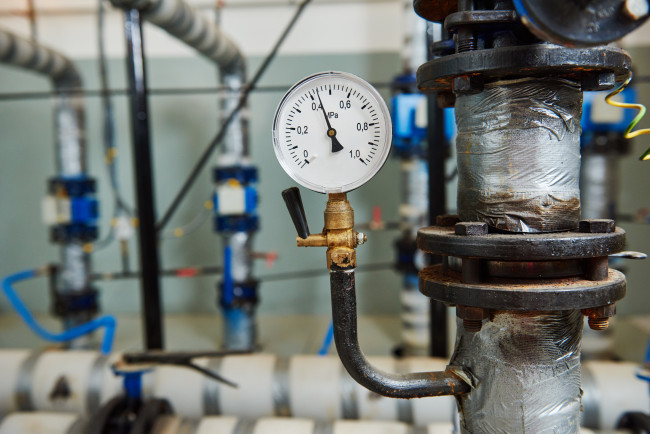New NYC fund will help pay for upgrades to reduce carbon emissions at affordable housing
- The city plans to channel Local Law 97 funding from carbon offsets to upgrade low-income housing
- The funds will help bring electric heating and cooling systems to rent-regulated apartments and low-income co-ops

Deputy Mayor for Operations Meera Joshi announces the GreenHOUSE fund to a small crowd of reporters and advocates on Thursday, Sept. 26th.
Celia Young/Brick Underground
New York City officials announced a new program on Thursday that would direct money from the city’s landmark climate law, Local Law 97, to reduce carbon emissions at rent-stabilized apartments and low-income co-ops.
Local Law 97 requires that many buildings above 25,000 square feet lower their carbon emissions, or face fines of $268 per metric ton of carbon next year. But for the same cost of a fine, owners can buy carbon offset credits to bring their buildings in compliance with the law and fund upgrades across the city’s crop of affordable housing.
“We don’t want your money, we actually want your carbon,” Meera Joshi, NYC’s deputy mayor for operations, said on Thursday. “Any affordable housing building can take advantage. By doing this, we’re making real inroads on the affordability challenge of emissions reduction mandates.”
Under the program, dubbed GreenHOUSE, owners will be able to buy carbon offset certificates early next year, before the May 2025 deadline when owners of covered buildings need to file a report detailing their emissions and a decarbonization plan, according to the NYC Department of Buildings. They can buy offset certificates for up to 10 percent of their emissions limit.
The money from those certificates will go towards upgrades curbing emissions at rent-regulated housing, much of which is exempt from Local Law 97’s requirements.
The city plans to add the funding to an existing city and state program, the Resilient & Equitable Decarbonization Initiative (REDI), which provides up to $1 million per building to replace a property’s heating and cooling with electric systems and to improve insulation. Governor Kathy Hochul tossed REDI $15 million in funding in August, but elected officials on Thursday said the additional funding will help electrify more buildings, addressing the housing and climate crises.

“Our housing crisis and our climate crisis share a common refrain,” said Maria-Torres Springer, deputy mayor for housing, economic development, and workforce. “And that refrain is that we are all in this together.”
It’s yet unclear how much money this carbon offset program will generate. Roughly 89 percent of NYC buildings above 25,000 square feet were already in compliance with Local Law 97’s emissions cap as of last year, and more can avoid fines by demonstrating a “good faith” effort to comply with the law.
Even more buildings could escape penalties if a pending City Council bill passes. The bill, from Queens Councilwoman Linda Lee and Sandra Ung, would delay fines and increase carbon emissions caps for co-ops and condos across the city. Plus, Local Law 97 is facing a legal challenge from building owners in Queens who hope to overturn it.


























